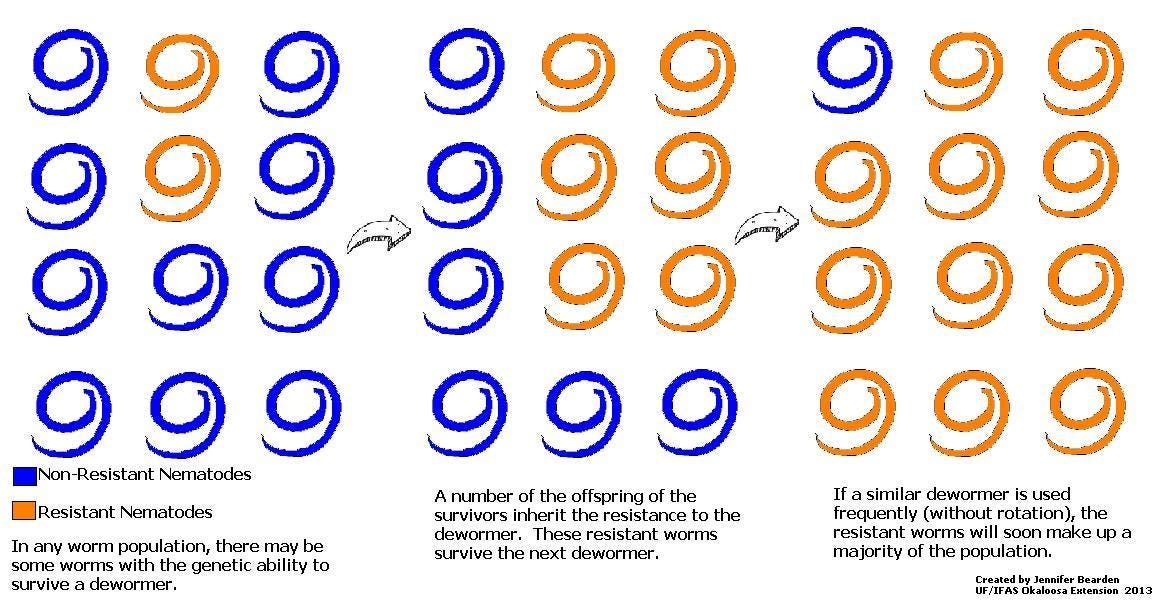
Most horses only need to be dewormed two to three times per year. The active ingredients in commercial dewormers need to be rotated to prevent resistance.
A new approach for worm control in horses is strategic deworming, in which you only treat at certain times of the year (spring through fall) or when fecal egg counts rise.
Fecal egg counts involve horse owners submitting fresh manure samples to a lab. Results are expressed as eggs per gram (epg) of manure.
According to the American Association of Equine Professionals, "a fecal egg count of less than 200 epg suggests a light parasite load. Horses with high fecal egg counts of 500-1000 epg suggest the interval between deworming is too long." Basically, fecal egg counts determine which horses merit treatment.
Generally, most horse owners deworm their horses whether they need it or not, every eight to 10 weeks based on the old recommendations. This practice has led to the development of drug resistance in worm (nematode) populations.
We have a limited number of dewormer products to use. To keep these dewormers effective, we must employ new strategies to prevent resistance.
In general, 20 percent of the horse population harbors 80 percent of the worm population. The other 80 percent of our horses may only need deworming twice per year, once in the spring and once in the fall.
Not only will this help prevent resistance, but also save you money.
Our office conducts fecal egg counts for area horses. Interested horse owners should contact me at 850-689-5850 or bearden@ufl.edu for more information.
You can connect with the Okaloosa County University of Florida IFAS Extension at http://okaloosa.ifas.ufl.edu or on Facebook at www.facebook.com/UFIFASOkaloosaExtension.
Jennifer Bearden is an agent at the University of Florida's Institute of Food and Agricultural Sciences Extension office in Crestview.


This article originally appeared on Crestview News Bulletin: This horse deworming strategy saves money
